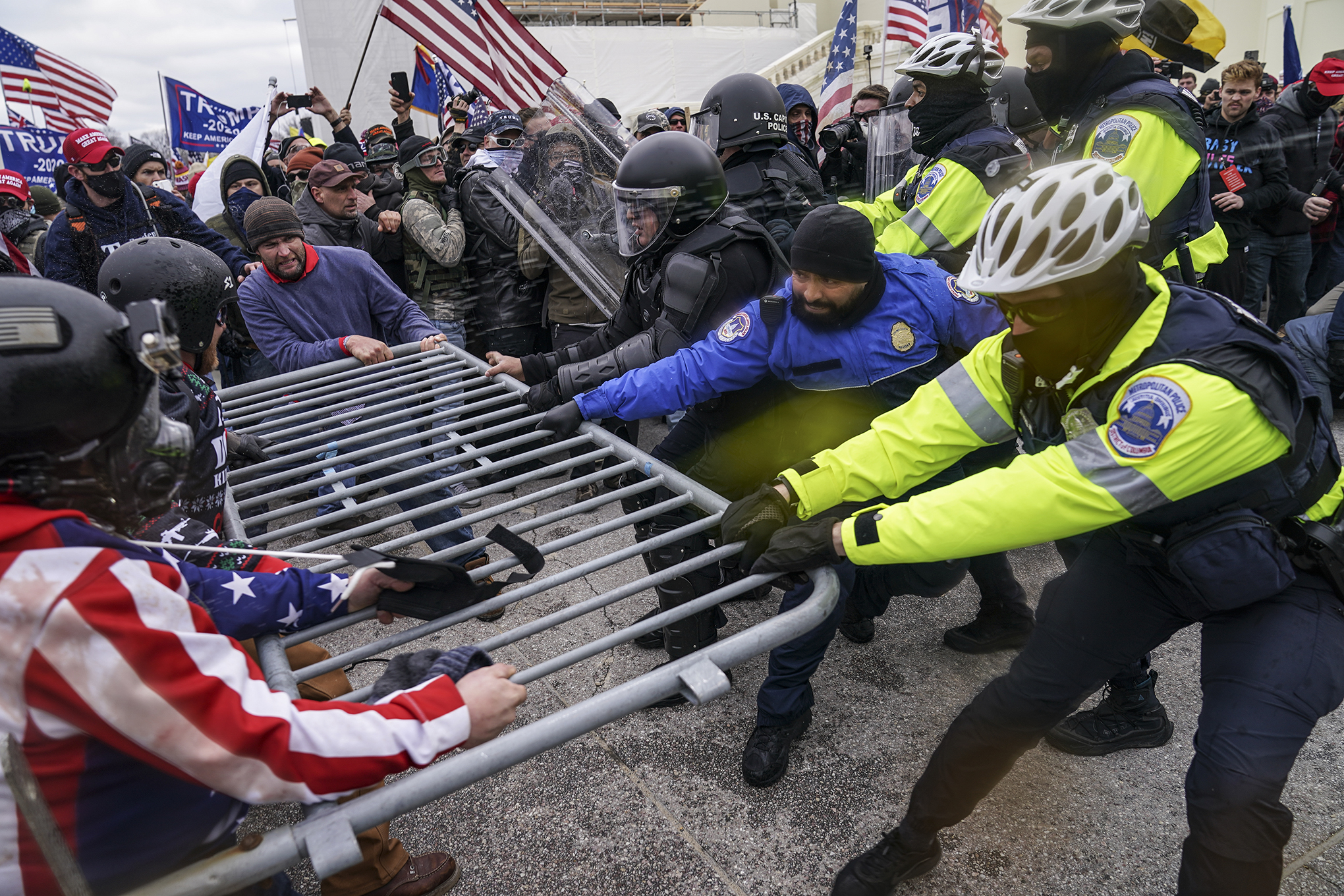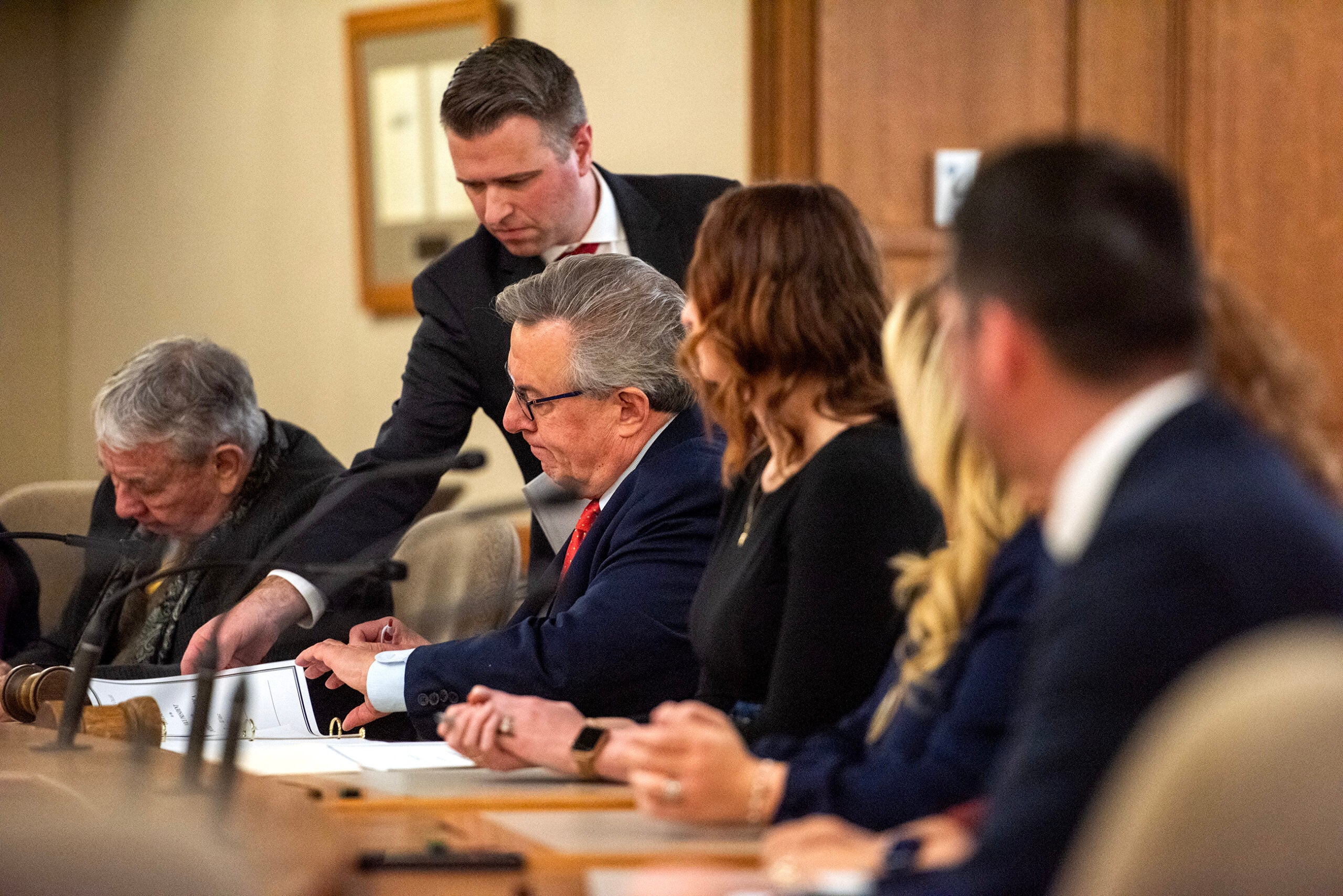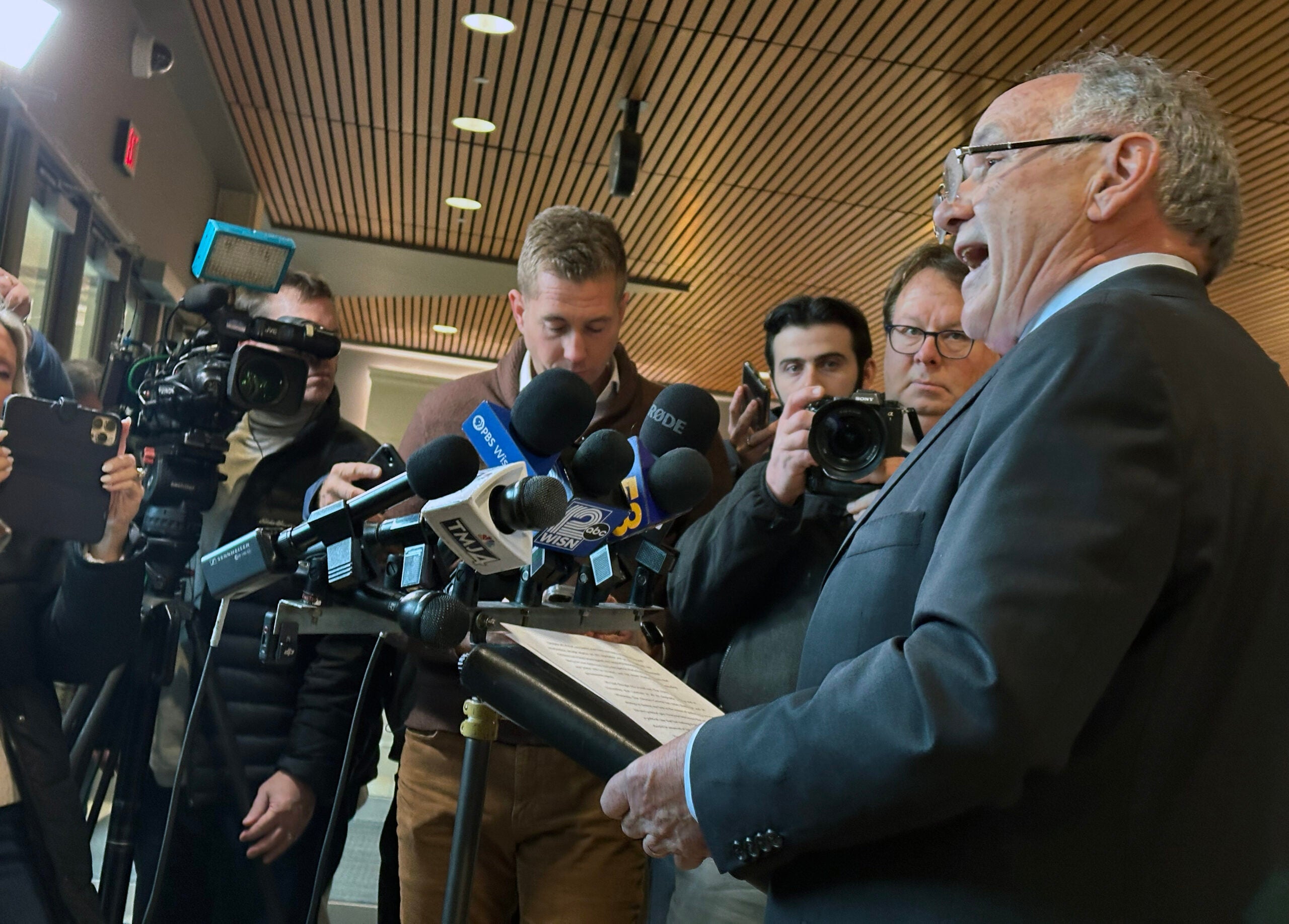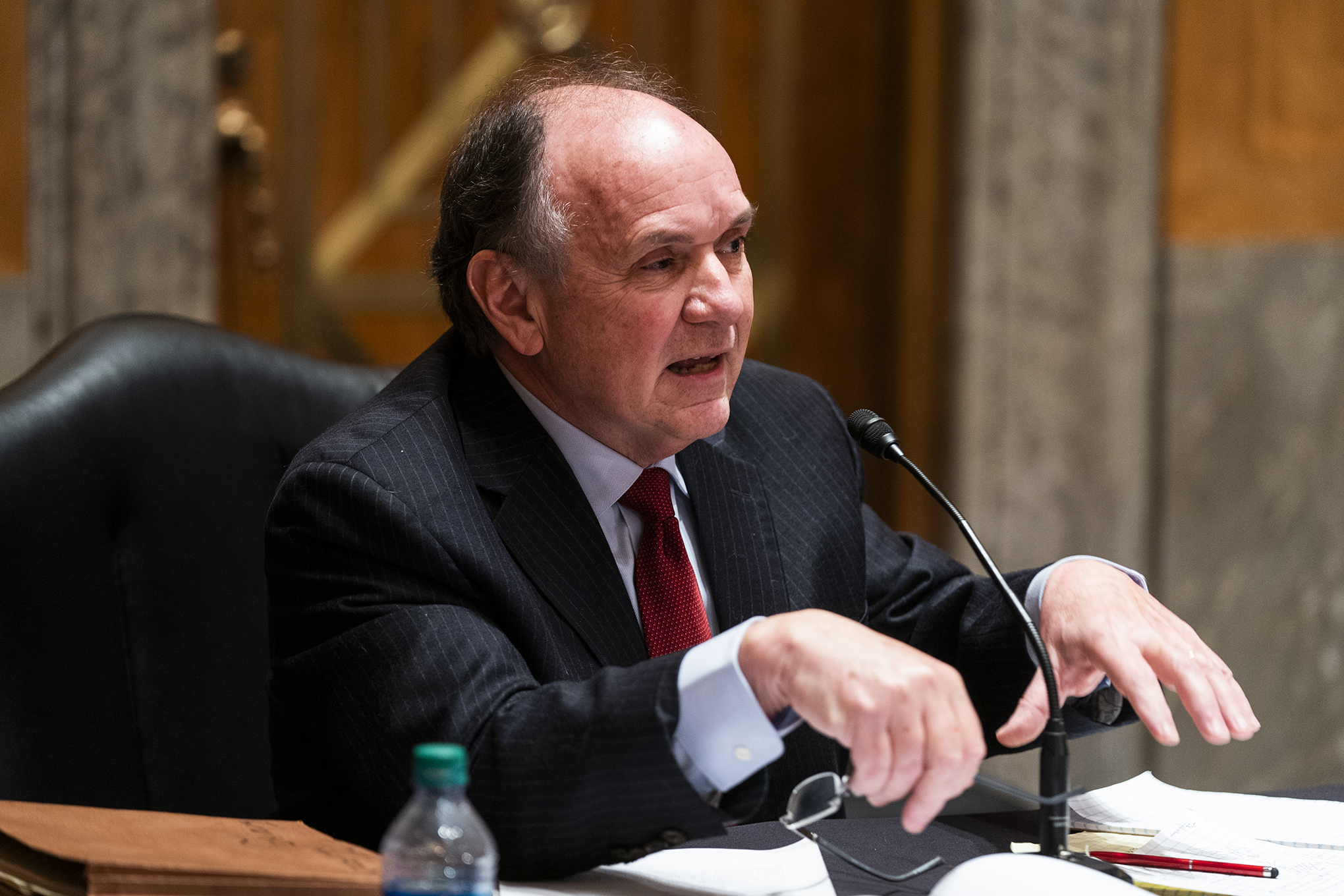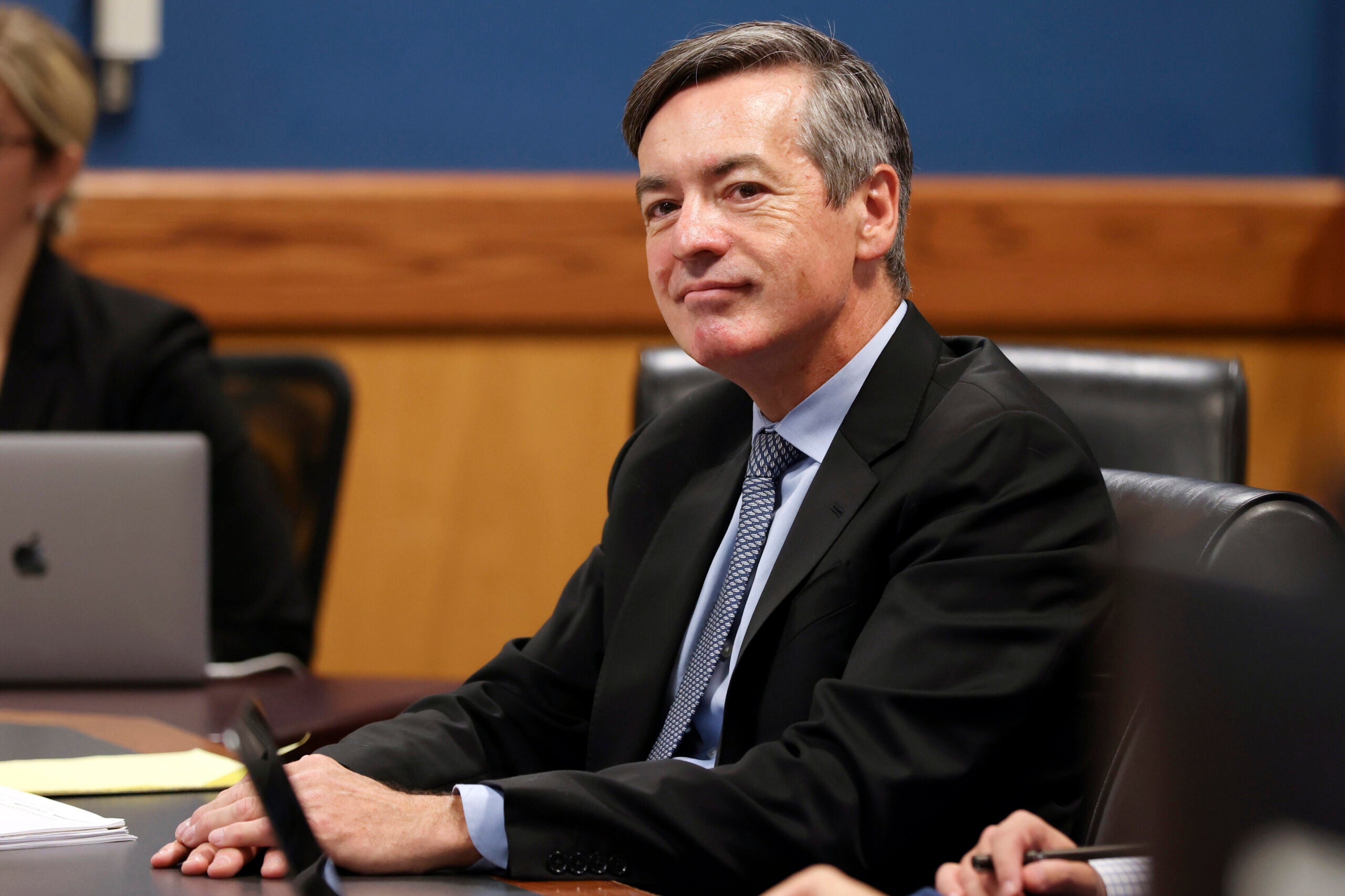For months, participants in Wisconsin’s false electors scheme — in which 10 Republicans signed official-looking documentation attesting that former President Donald Trump won Wisconsin in 2020, although he had lost — have maintained that they were developing a contingency plan in the face of pending legal action.
But documents cited in the criminal complaint brought against three alleged masterminds behind that scheme, filed by Attorney General Josh Kaul earlier this week, appear to contradict that claim.
Attorneys Kenneth Chesebro and James Troupis exchanged emails suggesting that they weren’t depending on court cases to grant them cause to submit false slates of electors from certain key swing states on January 6, 2021, the Constitutionally mandated date for certifying an election.
Stay informed on the latest news
Sign up for WPR’s email newsletter.
And political operative Michael Roman used colorful language when rejecting the idea of including a qualifier on the false elector sheet that it should be treated as a backup.
“There’s a lot more documentation that the Attorney General here in Wisconsin has been able to sort of comb through to see the communication that this was intentional, and that there was a plan,” said Lily Goren, a political scientist at Carroll University in Waukesha. “It wasn’t, you know, a kind of like, ‘Oh, let’s just try this and see if it works.”
That’s the argument Kaul put forward when he charged Chesebro, Troupis and Roman with one felony charge each of forgery on Tuesday. Chesebro and Roman have also been indicted elsewhere for their alleged role developing and executing the strategy, which was first developed in Wisconsin.
Troupis, then the lead Wisconsin attorney for Trump’s campaign, and Chesebro appeared to have used Wisconsin as a testing ground for a novel legal strategy arguing that courts, state legislatures or even the Vice President — acting in his role as president of the U.S. Senate — could determine a state’s election results.
In a Dec. 8, 2020 email cited in Kaul’s criminal complaint, Chesebro tells Troupis that providing alternate electors could be a way of exerting “leverage” on Congress.
“Court challenges pending on Jan. 6 really not necessary,” Chesebro wrote.
In a Dec. 12, 2020, a text message between Roman and Chesebro, Chesebro said he thought that language should be appended to the electors documents clarifying that they are not official.
“I don’t,” Roman responded. “f— these guys”
Roman, a longtime conservative opposition researcher and later Trump White House staffer, is alleged to have delivered the false documentation to Congress on January 6, 2021, the day of the deadly U.S. Capitol riots.
The criminal complaint says that Pennsylvania’s false elector documents did include that distinguishing language.
“And so there’s some discussion about whether some of the electors were aware” that they weren’t creating a contingency, said Goren, the political scientist. “One of the other persons casting one of the fake elector votes noted that they knew that the court had finished its decision that morning, in fact, and that there were no more pending legal issues in Wisconsin.”
State electors — both true and false — met on the Constitutionally determined date of December 14 to cast their electoral college votes. Earlier that same day, before anyone signed documents at the Wisconsin state Capitol in Madison, the Wisconsin Supreme Court had rejected a lawsuit filed by Troupis asking for Biden’s victory in the state to be overturned.
Former Wisconsin Republican Party Chair Andrew Hitt, who was one of the false electors, has said the group, acting on the advice of lawyers, had been “tricked.”
Roman, Troupis and the Trump campaign did not respond to WPR’s requests for comment. Chesebro could not be reached for comment.
False electors scheme allegedly led to Jan. 6 violence
In civil and criminal complaints against false electors in multiple states, prosecutors have argued their actions paved the way for the deadly day of chaos at the U.S. Capitol when pro-Trump rioters stormed the building.
U.S. Rep. Bennie Thompson, D-Mississippi, who chairs a U.S. House committee investigating the events of that day, has said the “alternative” slates of electors were intended to delay or block certification of the election that day.
Wisconsin now joins four other states — Nevada, Georgia, Arizona and Michigan — where criminal charges have been filed against people involved in false electors schemes.
On Friday, Roman pleaded not guilty to nine felony charges in Arizona. He and Trump’s former chief of staff Mark Meadows, along with others, have been charged in Phoenix for allegedly working across states to enact the scheme.
Chesebro and Roman have also been charged in the election interference case in Georgia, where Chesebro has pleaded guilty to one felony count of conspiracy to commit filing false documents.
In March, Chesebro and Troupis also settled a Wisconsin civil lawsuit brought against them in 2022. As part of that agreement, the two men admitted no “liability or culpability,” but said they would not submit false electors in the future.
The ten individuals who acted as electors, which included sitting Wisconsin Elections Commissioner Bob Spindell and Hitt, the former GOP Chair, also separately settled that lawsuit. In the settlement, the group admitted no wrongdoing but said their actions had been used to lay the groundwork for the deadly attempted insurrection of Jan. 6.
That lawsuit, brought by the progressive law firm Law Forward, led to the release of a trove of documents, some cited in Kaul’s complaint. It included an email from Chesebro to Troupis just days after the election, suggesting that they could create a “cloud of confusion” that would remove Wisconsin’s votes, and potentially votes from Michigan and Pennsylvania, from consideration — thus “throw(ing) the election to the (U.S.) House.”
Chesebro, Troupis and Roman’s first court appearance in the Wisconsin case will be on Sept. 19. The charges carry a potential fine of up to $10,000 and imprisonment of up to six years.
Wisconsin Public Radio, © Copyright 2025, Board of Regents of the University of Wisconsin System and Wisconsin Educational Communications Board.
